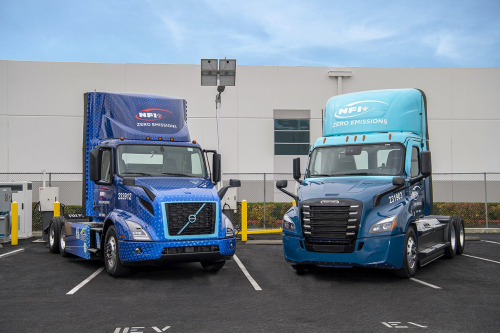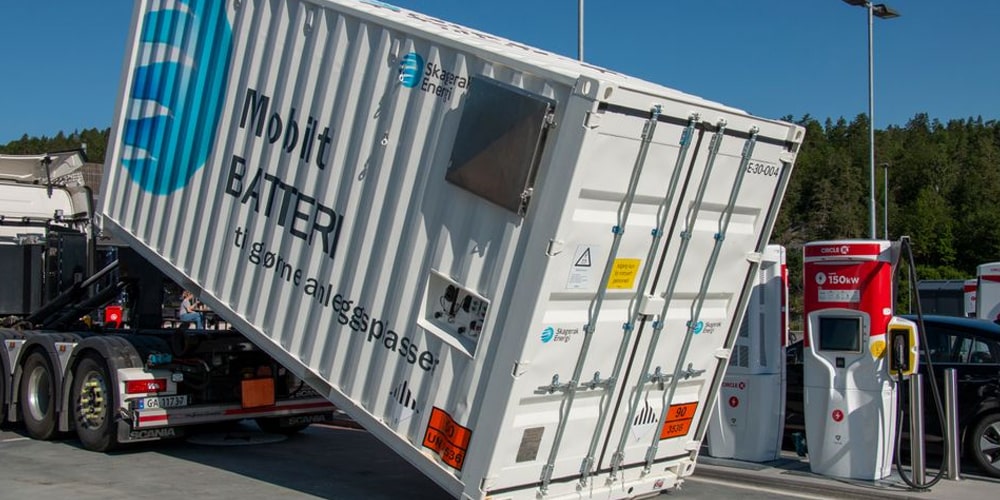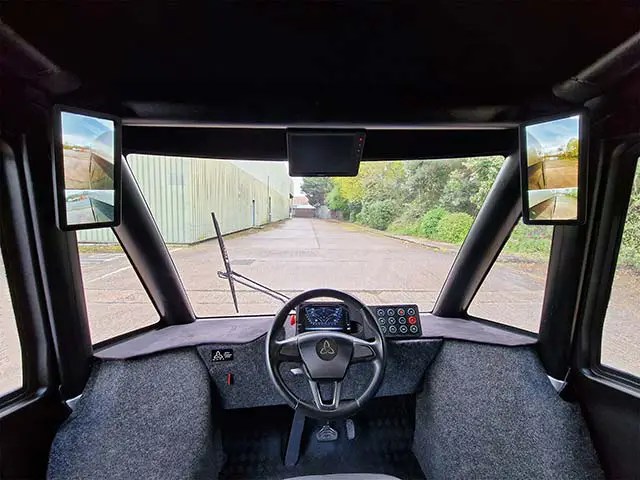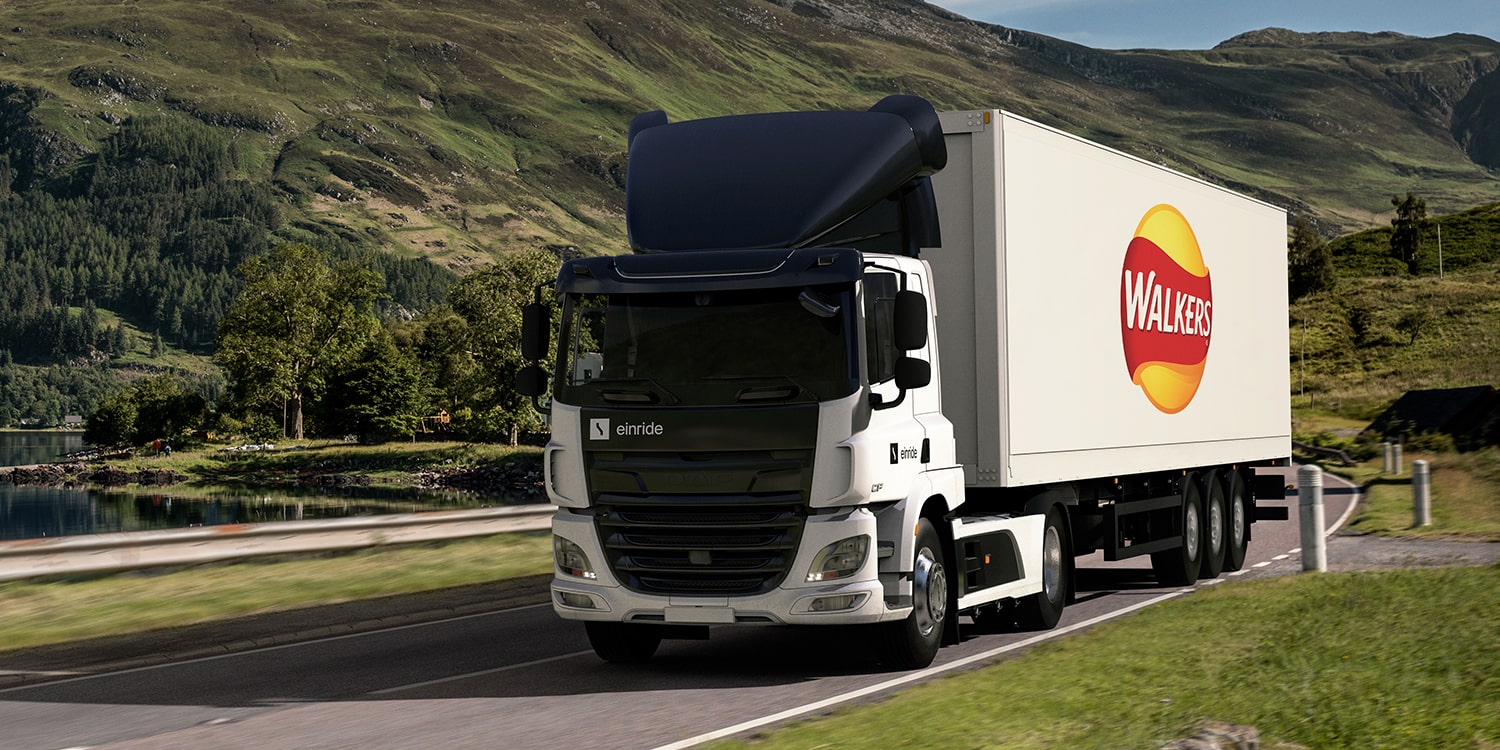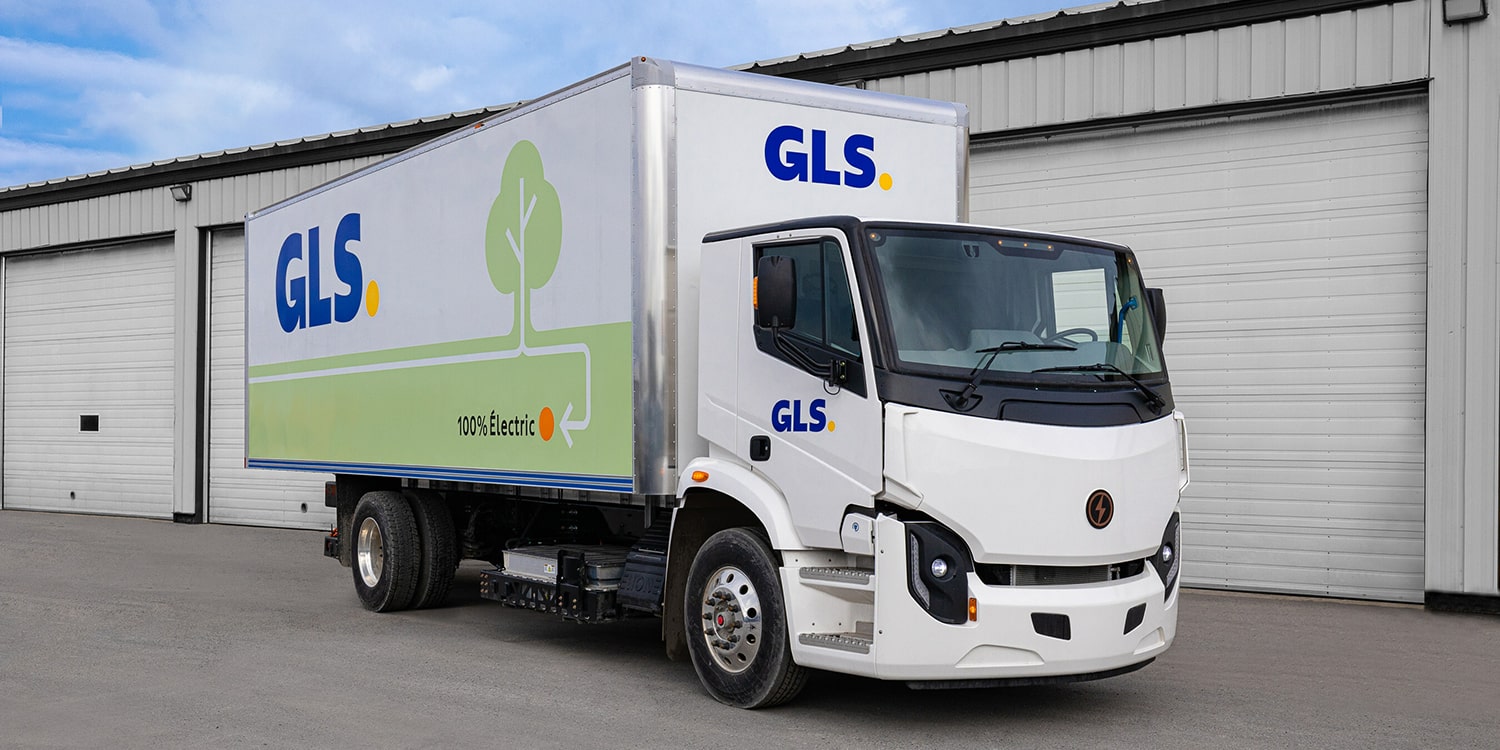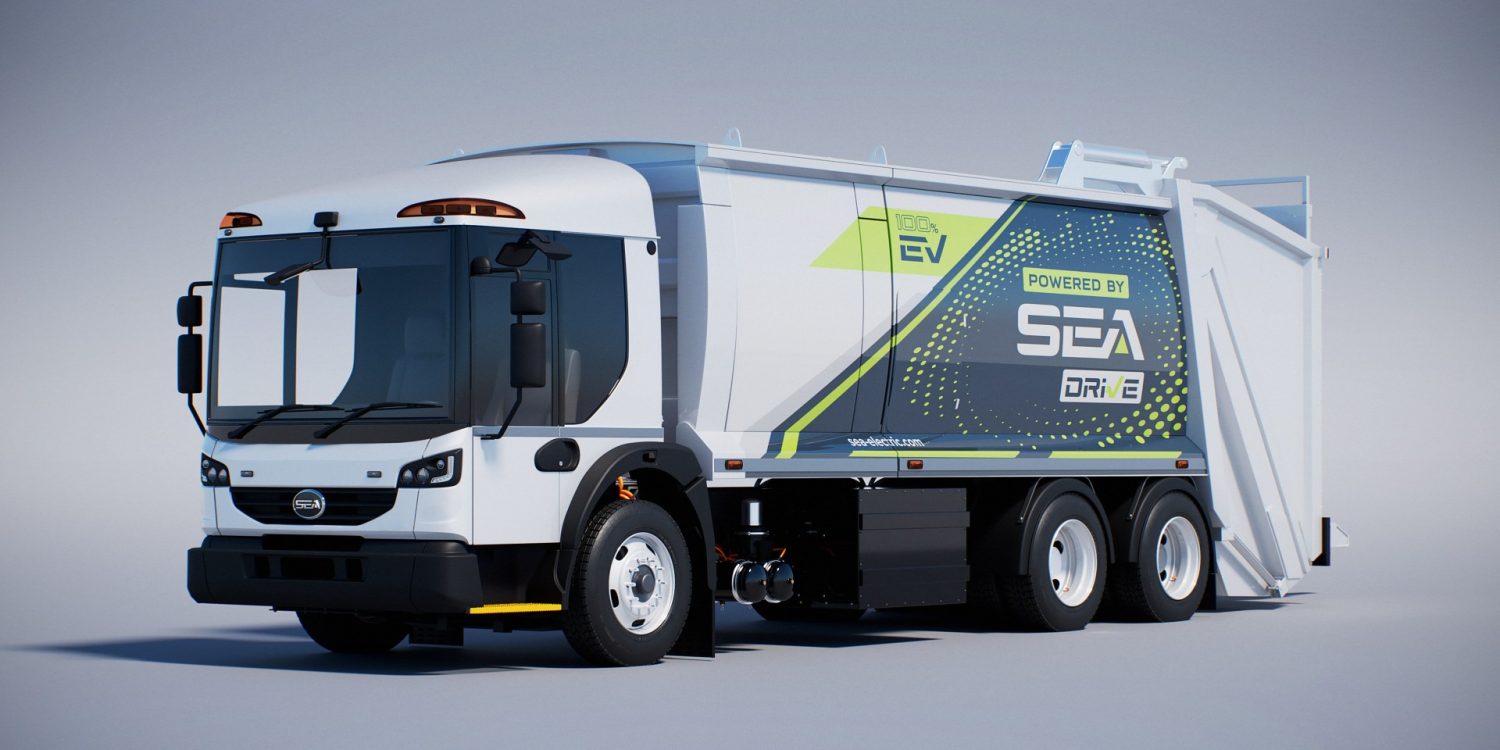NFI, a major third-party supply chain solutions provider in the US, is accelerating its commitment to sustainability by expanding its fleet of Class 8 battery-electric trucks (BETs) in Southern California. The move is part of the Joint Electric Truck Scaling Initiative (JETSI) project, which aims to demonstrate that fleets can scale up their BET fleets successfully.
Under the project, NFI plans to deploy and operate 30 electric Freightliner eCascadias and 20 Volvo VNR Electric trucks from its warehouse facility in Ontario, California. These trucks will support its dedicated port drayage services for customers spanning from manufacturing to retail. The company has already received the first 15 of its Class 8 BETs funded through the project, with the remaining ordered trucks set to be delivered by the end of June 2023.
See also: New Flyer Secures 14 Zero-Emission Bus Order from Central Ohio Transit Authority
Over the past 90 years, NFI has built a company-owned fleet of over 5,000 tractors and 14,300 trailers. As part of its commitment to driving supply chain sustainability, the company has taken a leadership role in the electrification of freight movement and has participated in several BET demonstration projects since 2018, including the Volvo LIGHTS, Daimler Truck’s Innovation Fleet, and Switch-On projects.
Through its participation in multiple freight electrification projects, NFI has gained valuable insights into which routes are optimal for BETs, based on factors such as the number of stops, topography, traffic patterns, and freight being transported. In addition, the company has collaborated with Volvo Trucks North America and Daimler Truck North America to configure its trucks based on its operational needs and train its drivers on how to maximize the benefits of regenerative braking.
To support its growing BET fleet, NFI is working with Southern California Edison, Electrify Commercial, and the City of Ontario to install the charging infrastructure needed. The company plans to upgrade its facility’s power supply and install 19 350kW power cabinets, which have 38 electric vehicle charger dispensers. The charging infrastructure is expected to be installed and energized by the end of 2023. In the meantime, NFI will temporarily operate its BETs from its Chino facility, which has high-powered charging infrastructure from earlier projects.
Funding for 50 of NFI’s BETs and supporting charging infrastructure came from JETSI, a joint project of the South Coast Air Quality Management District (South Coast AQMD), California Air Resources Board (CARB), and the California Energy Commission (CEC). The project received joint financing of $26.98 million from California Air Resources Board and California Energy Commission, $8 million from MSRC, and $5.4 million from South Coast AQMD. An additional $21.7 million came from Port of Long Beach, Port of Los Angeles, Southern California Edison, NFI, and Schneider.
See also: Waymo shows off its autonomous prototype car based on Geely SEA-M architecture
In conclusion, NFI’s expansion of its BET fleet in Southern California is a significant step forward in its commitment to sustainability and reducing greenhouse gas emissions. The company’s participation in multiple freight electrification projects has given it valuable insights into the optimal routes for BETs, and its collaboration with industry partners has helped it configure its trucks based on operational needs. The installation of charging infrastructure will be crucial to supporting NFI’s growing BET fleet, and the JETSI project’s funding will help accelerate the adoption of clean transportation solutions in California.

